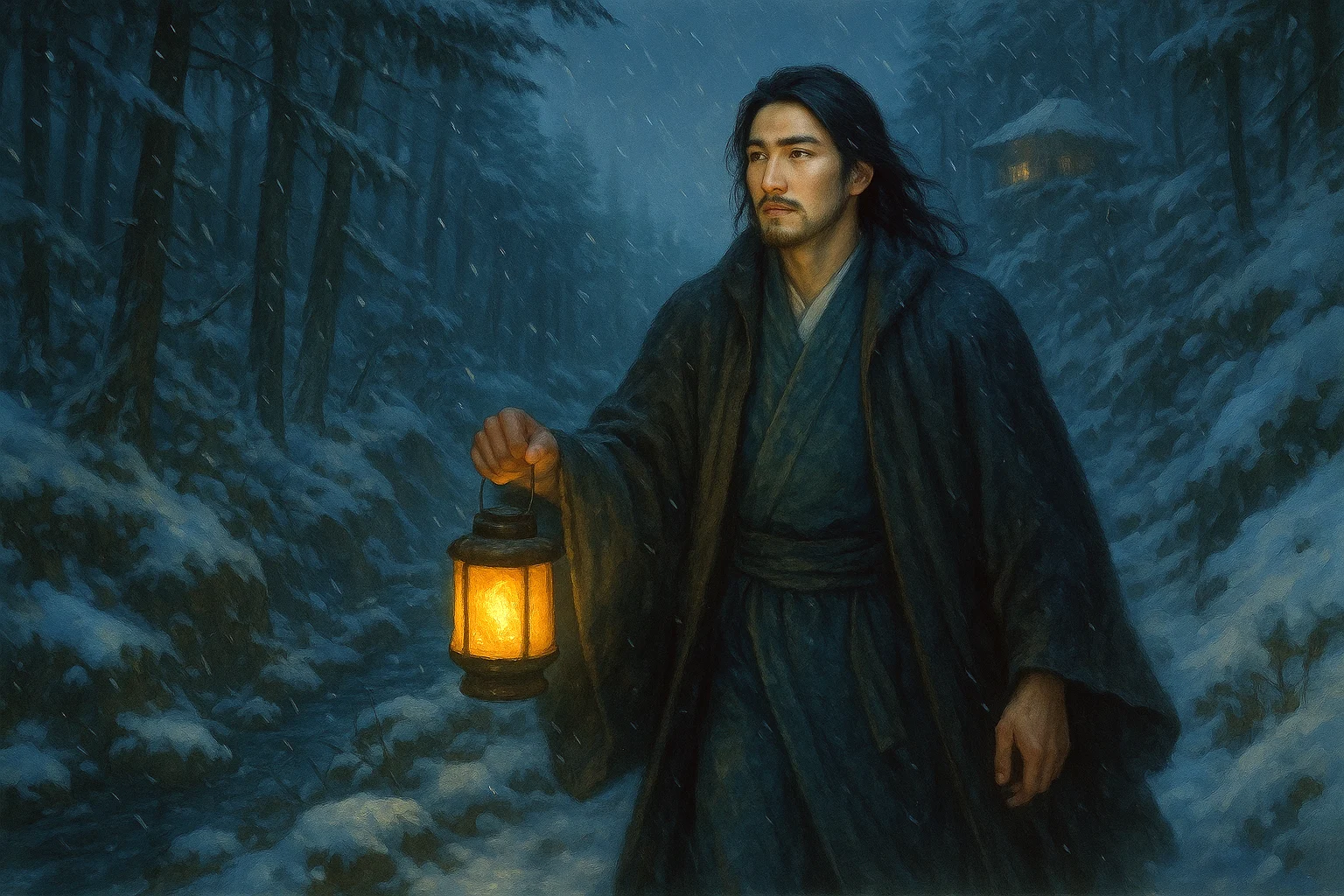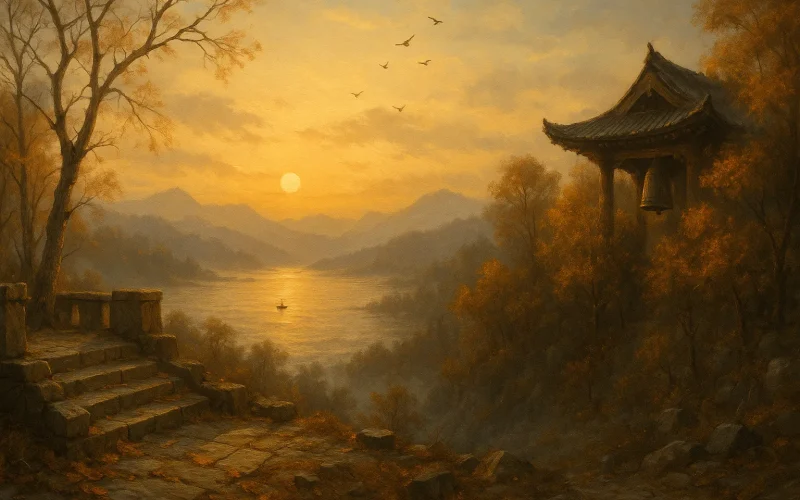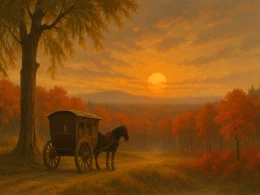From the temple, deep in its tender bamboos,
Comes the low sound of an evening bell,
While the hat of a pilgrim carries the sunset
Farther and farther down the green mountain.
Original Poem
「送灵澈上人」
刘长卿
苍苍竹林寺,杳杳钟声晚。
荷笠带斜阳,青山独归远。
Interpretation
Composed between 769-770 AD during the Dali era, this poem was written when Liu Zhangqing, depressed by political setbacks, was stranded in Runzhou, while the then-unknown monk Lingche wandered through Jiangnan. Though following different paths—one a disillusioned scholar-official, the other a reclusive monk—they shared a kindred spirit in their unrecognized talents and quiet yearning for retreat. Penned at dusk as Liu bid farewell to Lingche returning to Bamboo Grove Temple, the verses express profound parting sentiment and longing for an idealized spiritual life.
First Couplet: "苍苍竹林寺,杳杳钟声晚。"
Cāngcāng zhúlín sì, yǎoyǎo zhōngshēng wǎn.
Emerald-bamboo temple veiled in haze, / Evening bell-tones drift through the maze.
The poet gazes toward Lingche's mountain sanctuary, using the "evening bell" to mark the twilight hour while symbolizing worldly detachment. The imagery creates an ethereal, transcendent atmosphere that reflects both the monk's spiritual path and the poet's wistful admiration.
Second Couplet: "荷笠带斜阳,青山独归远。"
Hélì dài xiéyáng, qīngshān dú guī yuǎn.
Straw-hat graced by slanting sunlight's hue, / Alone toward green peaks, far he withdrew.
Lingche's departing figure merges with the landscape—his hat catching the last light as he recedes into the mountains. The phrase "alone…far" conveys both the monk's solitary journey and the poet's lingering gaze, imbued with unspoken longing.
Holistic Appreciation
In just twenty characters, the poem constructs a multidimensional farewell: horizontally across space (temple to peaks), vertically through sensory layers (emerald hues to distant sounds), and temporally from day to dusk. The restrained description—devoid of direct emotional language—achieves profound resonance through implication, where the monk's solitary retreat mirrors the poet's own spiritual isolation.
Artistic Merits
- Sensory Harmony: Blends color ("emerald," "sunlit"), sound ("bell-tones"), and spatial depth ("veiled," "far")
- Symbolic Economy: The straw-hat becomes a halo of devotion; sunset light marks transitional states
- Structural Balance: First couplet establishes setting, second focuses on figure—together forming yin-yang completeness
- Auditory Perspective: The fading bell parallels visual disappearance, enhancing the poignancy of parting
Insights
This Tang masterpiece speaks to modern seekers navigating between engagement and retreat. The monk's "alone…far" journey resonates with contemporary yearnings for authenticity amid noise. Liu's artistic restraint—conveying depth through observed details rather than confession—models how creative expression can honor profound experiences without exploitation. The poem ultimately suggests that true connection often manifests in graceful release, where farewell itself becomes sacred observance.
Poem translator
Kiang Kanghu
About the poet

Liu Zhangqing (刘长卿) was a native of Xian County, Hebei Province. He studied at Mt. Songshan when he was young, and later moved to Jiangxi, where he received his bachelor's degree in 733 A.D. He also belonged to the Wang and Meng school of poetry. His poems belonged to the school of Wang and Meng, and he was most famous for his five-character poems, and was also most conceited, once thinking that he was "the Great Wall of five-character poems", which meant that no one could surpass him.












